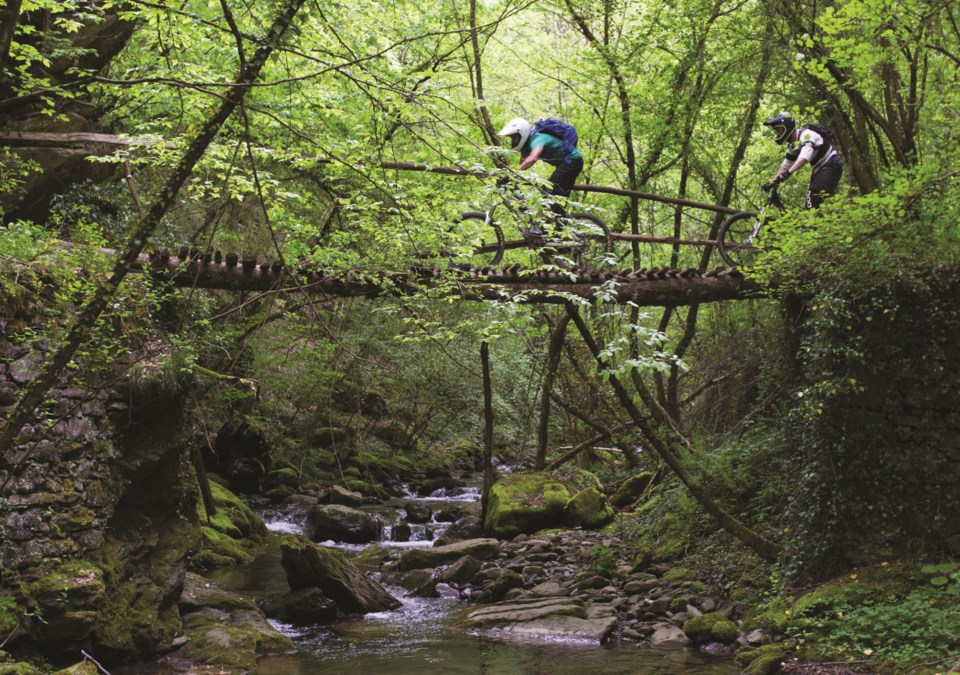The world woke up in 2020 to the racial injustices that continue to ravage our society. Law enforcement has issues with systemic racism, not just a few bad apples. Academic articles have been published with titles such as “Ignored to Death: Systemic Racism in the Canadian Healthcare System.” The BIPOC acronym has all but become a household name. And while meaningful change isn’t happening overnight, at least awareness has increased to a point where it’s on the minds of people born into intrinsic privilege.
People like most of us here living in Whistler.
Some movement has occurred in the outdoor tourism and action sport industries pertaining to diversity, equity and inclusion. In August, Powder magazine (RIP) published a web story written by Japanese-American skier Garrett Schlag highlighting his experience as a non-white growing up in the very white ski town of Park City, Utah. The story is analogous to almost every North American ski town (including Whistler), because of the stated statistic from the National Ski Areas Association: 88 per cent of skiers are white.
Schlag contested the view of white skiers to “leave race out of it” when he spoke up about the lack of racial diversity among skiers:
“Any difficulty in processing skiing’s whiteness is a result of a racially homogenous space so insular that its existence as such has gone largely unchallenged,” he wrote. “Skiing has long served as an escape for white people from multicultural politics and accusations of privilege, and that is precisely why we can’t leave race out of it.”
The mountain-bike industry is equally lacking in diversity. Though I couldn’t find any concrete stats such as the 88 per cent figure above, anyone who has ridden a popular trail area can tell you that it’s an incredibly white sport. On June 6, 2020—the week following the George Floyd protests in the U.S.—Pink Bike’s Brian Park wrote an editorial titled “Race & Accessibility in the Mountain Bike Community” that criticized the industry for its reaction (or lack thereof) as well as the responses from Pink Bike’s own community members.
“The mountain bike community’s response to athletes and industry expressing support over the last week has been disheartening,” wrote Park. “There have been countless comments actively diminishing black athletes’ experiences of racism, knee jerk whataboutism, and false equivalencies about looting and extremists. We know that this community is made up of many amazing people, so there has to be a gap in understanding somewhere. It’s tempting to be cynical of lip service wokeness and hashtag activism, but a large number of our community aren’t ready to acknowledge that there’s a problem at all. And that’s a problem.”
But it was the voice of Elliot Jackson, one of the few people of colour who compete in the UCI World Cup Downhill, which offered the most scathing summary of the cycling industry in an 11-minute Instagram TV video.
“I’m talking about the experiences I have on a daily basis,” he said. “Like when people come up to me and say ‘do you think you’d be on Giant (sponsorship) if you weren’t black?’ These things happen all the time to black people. Everyone; brands, athletes, fans, they build this image or identity of being culturally inclusive. You’re saying that racism doesn’t exist in cycling, but how would you know? Just because you haven’t experienced it doesn’t mean it doesn’t exist.”
A lot of us went through some self-reflection this year about this issue. The guilt of staying silent as an implicit endorsement of the status quo—not realizing what actions we can take without being labelled as disingenuous. But there are those who are going beyond that and taking positive steps. This year Whistler mountain biker and coach Anita Naidu combined her bike clinics with social-impact training that focused on “anti-racism, understanding privilege and learning how to be an effective ally.” The Professional Mountain Bike Instructors Association (PMBIA) launched a crowdfunding campaign this week as part of the North America-wide MTB Equality Fund to assist more BIPOC coaches getting certified (head to mtb-equity-coalition.causevox.com/PMBIA if you’re inclined to support that particular initiative).
Our country is grappling with the immediate challenge of the pandemic right now, but we don’t want to lose sight of these issues, which are also affecting our outdoor communities. Acknowledging the problem is the first step. Doing more about it than what we’ve been doing is the next.
Vince Shuley is looking for more ways to make the sports he loves more inclusive. For questions, comments or suggestions for The Outsider email [email protected] or Instagram @whis_vince.




